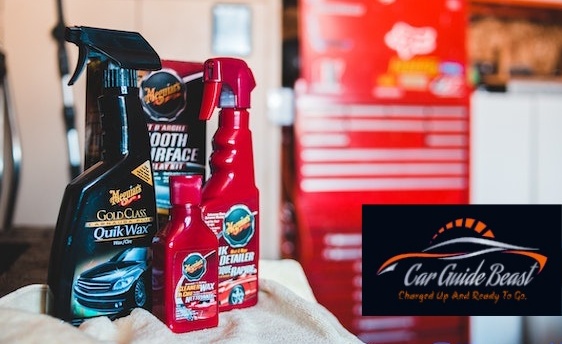Car maintenance is an essential part of owning a vehicle, and one aspect that requires regular attention is washing the car. Most car owners rely on commercial car wash soaps, but have you ever considered car wash soap alternatives? In this article, we will explore the world of natural car wash soap alternatives and how they can be a great choice for both your car’s cleanliness and the environment. So, let’s dive in!
When it comes to cleaning your car, using the right products is crucial. Conventional car wash soaps often contain a variety of chemicals that can be harmful to the environment and your vehicle’s paintwork. Fortunately, there are alternative options available that utilize natural ingredients and offer a safer, eco-friendly solution.
Importance of Car Wash Soap
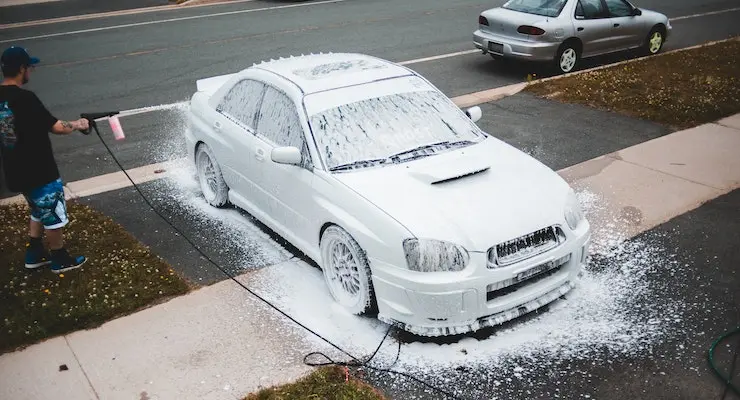
Regularly washing your car helps maintain its appearance and protects it from various contaminants. Car wash soap plays a vital role in this process by effectively removing dirt, grime, and other impurities without causing any damage.
Common Car Wash Soap Ingredients
Before delving into car wash soap alternatives, it’s important to understand the common ingredients found in traditional car wash soaps. These typically include surfactants, detergents, preservatives, fragrances, and colorants. While these ingredients are effective in cleaning, some may have adverse effects on the environment or your vehicle.
Concerns with Traditional Car Wash Soaps
Traditional car wash soaps often contain synthetic chemicals that can harm aquatic life and contribute to water pollution. Additionally, certain ingredients may strip away the protective wax coating on your car’s paint, leaving it vulnerable to damage from UV rays and other external elements. That’s why people should think about car wash soap alternatives.
Car Wash Soap Alternatives
Now, let’s explore some car wash soap alternatives that are not only effective but also gentle on your car and the environment. These car wash soap alternatives utilize natural ingredients and offer a safer washing experience.
Natural Ingredients for Car Washing
Castile Soap: Derived from vegetable oils, castile soap is an excellent natural alternative for car wash soap. It is biodegradable and free from harsh chemicals, making it safe for your car’s paint and the environment.
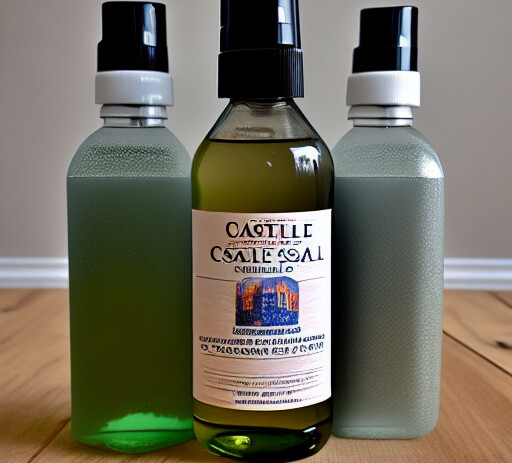
Baking Soda: This common household ingredient can be used as a gentle abrasive to remove stubborn stains or grime from your car’s exterior. Mix it with water to create a paste and apply it to the affected areas.
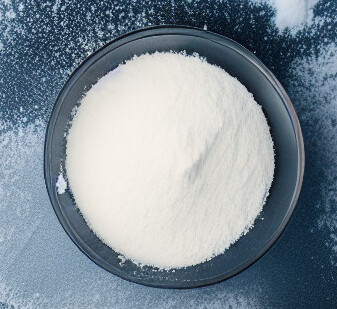
Vinegar: Known for its cleaning properties, vinegar can effectively remove dirt and grime. Mix it with water and use it as a final rinse to achieve a streak-free shine.
Homemade Car Wash Soap Alternatives
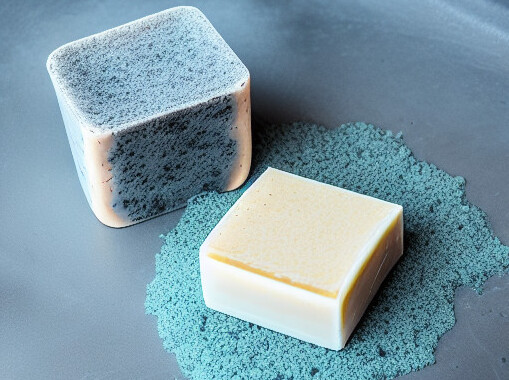
If you prefer a DIY approach, you can easily create your own homemade car wash soap using natural ingredients. Homemade car wash soap that does not remove wax are good options for your car’s exterior. Here are a few simple recipes to try:
- Citrus Car Wash Soap: Mix equal parts of liquid castile soap, water, and freshly squeezed citrus juice (such as lemon or orange). This combination provides a pleasant scent while effectively cleaning your car.
- Coconut Milk Car Wash Soap: Combine coconut milk, baking soda, and a few drops of essential oil for a luxurious homemade car wash soap. The coconut milk nourishes the paint while the baking soda gently cleanses.
Benefits of Homemade Car Wash Soap Alternatives
Using homemade car wash soap alternatives offer several benefits. Firstly, you have control over the ingredients, ensuring that no harmful chemicals are present. Secondly, it is a cost-effective solution compared to purchasing commercial car wash soaps. Lastly, homemade alternatives are often eco-friendly, reducing your environmental impact.
Using Dish Soap as a Car Wash Soap Alternative
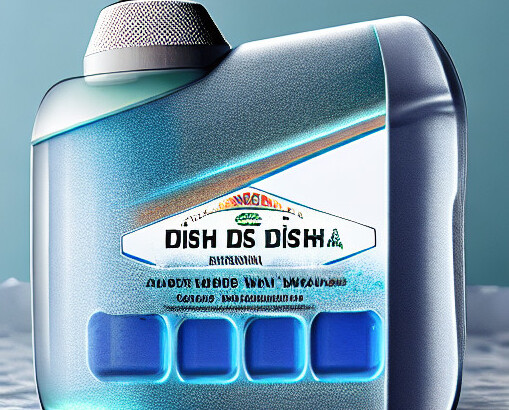
Dish soap is a common household product that some car owners consider using as a car wash soap alternative. While it can effectively remove dirt and grime, caution must be exercised.
It’s essential to choose a mild dish soap that doesn’t contain harsh chemicals or degreasers. Additionally, dilute the dish soap with water before using it on your car. Remember, dish soap is designed for removing grease and may strip away the protective wax on your car’s paint if used excessively.
Precautions When Using Dish Soap
When opting for dish soap as a car wash soap alternative, keep the following precautions in mind:
- Avoid using dish soap on a regular basis as it may compromise the protective wax layer on your car.
- Rinse your car thoroughly after using dish soap to remove any residue.
- Consider applying a wax or sealant after using dish soap to restore and protect your car’s paintwork.
Other Household Products as Car Wash Soap Alternatives
Apart from dish soap, several other household products can serve as effective car wash soap alternatives. These include:
White vinegar: Mixed with water, white vinegar can be used as a window cleaner for a streak-free shine.
Club soda: Due to its carbonation properties, club soda can help break down stains and grime on your car’s exterior.
Cornstarch: Ideal for removing oil or grease stains, cornstarch can be sprinkled on the affected area, left to absorb, and then brushed away.
Things to Avoid as Car Wash Soap Alternatives
When considering car wash soap alternatives, there are certain alternatives that should be avoided due to their potential negative effects on your vehicle’s paint or the environment. Here are 10 alternatives to avoid for car wash:
- Laundry Detergent: Laundry detergents are designed for fabric cleaning and may contain harsh chemicals that can damage your car’s paintwork and strip away protective coatings. So laundry detergent for car wash are not recommended to use.
- Household Cleaners: Avoid using general household cleaners, such as all-purpose sprays or bathroom cleaners, as they can contain abrasive substances that may scratch or dull your car’s paint.
- Bleach: Bleach is a powerful disinfectant but is too harsh for car washing. It can corrode metal surfaces and cause damage to the paint, leading to discoloration or fading.
- Harsh Chemicals: Stay away from harsh chemicals like ammonia, acetone, or strong solvents, as they can cause irreparable damage to your car’s paint, leaving it dull and prone to peeling.
- Hand Soap: Can I use hand soap to wash my car? Although hand soap may seem like a convenient option, it typically contains moisturizers and fragrances that can leave residue on your car’s surface, affecting its shine and finish.
- Dish Detergents with Degreasers: While mild dish soap can be a viable alternative, dish detergents with added degreasers should be avoided. These can be too harsh for your car’s paint and can strip away wax protection.
- Windex or Glass Cleaners: Glass cleaners like Windex are formulated specifically for cleaning windows and may not be suitable for the overall car wash. They may contain chemicals that are not car paint-friendly.
- Vinegar and Water Alone: Although vinegar is a natural cleaning agent, using it alone without proper dilution or combination with other ingredients may damage your car’s paint. Always use vinegar in a safe ratio with water.
- Rubbing Alcohol: Rubbing alcohol can be too abrasive for car surfaces and may cause damage or fading. It is better to avoid using it as a car wash alternative.
- Gasoline or Diesel Fuel: These substances should never be used as car wash alternatives. They are highly flammable and can cause severe damage to your car’s paint, as well as pose a significant safety risk.
Remember, when opting for an car wash soap alternatives, it’s essential to choose options that are gentle, safe, and designed specifically for automotive use.
Tips for Washing Your Car Safely
When washing your car, follow these tips to ensure a safe and effective cleaning process:
- Park your car in a shaded area to prevent the soap from drying out too quickly.
- Use a microfiber wash mitt or sponge to avoid scratching the paint.
- Rinse your car thoroughly before and after washing to remove loose dirt and contaminants.
- Work from top to bottom, starting with the roof and gradually moving down to the lower areas.
- Dry your car with a microfiber towel or chamois to prevent water spots.
Conclusion
Exploring car wash soap alternatives can lead to a safer and more environmentally friendly car washing experience. Natural ingredients and homemade recipes provide effective cleaning without the use of harsh chemicals. Remember to exercise caution when using dish soap and consider other household products as potential alternatives. By adopting these practices, you can maintain your car’s cleanliness while minimizing your impact on the environment.
FAQs
Can I use regular soap to wash my car?
While regular soap may clean your car to some extent, it is not recommended. Regular soaps may contain harsh chemicals that can damage your car’s paint and wax coating.
Are homemade car wash soaps as effective as commercial ones?
Homemade car wash soaps can be just as effective, if not more, than commercial ones. They are often gentler on your car’s paint and offer the advantage of using natural ingredients.
How often should I wash my car?
The frequency of car washing depends on various factors, such as weather conditions and usage. As a general guideline, aim to wash your car at least once every two weeks.
Can I use car wash soap alternatives on any type of vehicle?
Yes, car wash soap alternatives can be used on any type of vehicle, including cars, trucks, and motorcycles. However, it’s always a good idea to test a small area first to ensure compatibility.
Where can I find the ingredients for homemade car wash soap recipes?
Most ingredients for homemade car wash soap recipes can be found in local grocery stores or online. Look for natural ingredients such as castile soap, baking soda, and vinegar in the cleaning or household sections.
Can I use shampoo to wash my car?
Using shampoo to wash your car is not recommended. While shampoo may be gentle on your hair, it is not formulated for automotive use.
What can I use to wash my car at home?
Stiff brush, shampoo, glass cleaner, vinegar etc…
